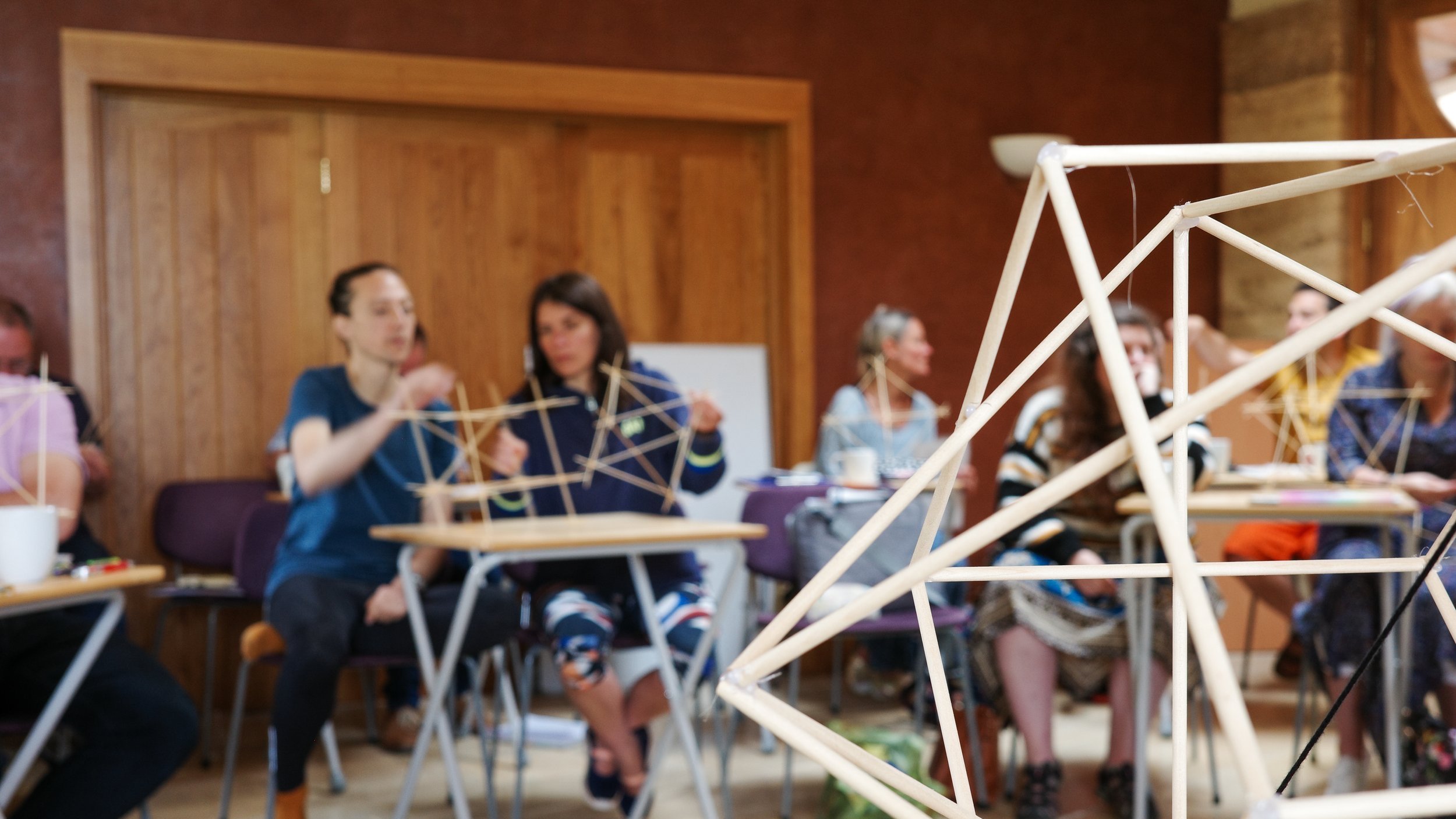
Events at the Field Centre
The Field Centre is host to a broad range of events and courses, from lectures and presentations to weekend seminars.
See below for upcoming events, details and how to book.
Upcoming events
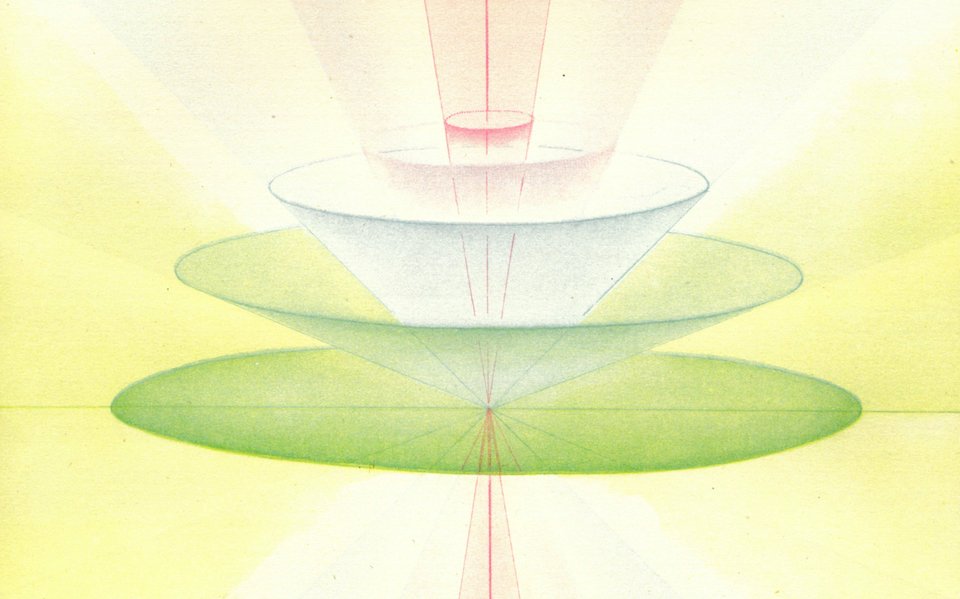
Projective Geometry Conference of the Natural Science Group
This is an open research group conference welcoming all interested people irrespective of previous mathematical experience. Hands-on drawing exercises and artistic activities are integrated alongside presentations on diverse themes.

The Organic Geometry of Path Curves
As part of the Projective Geometry Conference, the Natural Science Group of the Anthroposophical Society in Great Britain presents: The Organic Geometry
Lecturer: Russell Arnold, Mathematician at the Section for Mathematics and Astronomy at the Goetheanum
The families of shapes known as path curves and path surfaces contain a remarkable variety of forms found in living nature, as demonstrated by Lawrence Edwards following the inspiration of George Adams. This talk will look at the historical, mathematical and morphological context of these shapes.
Friday 27 June 2025, 19.00 - 20.30
The Field Centre, Nailsworth GL6 0QE
Free lecture. Contributions welcome.
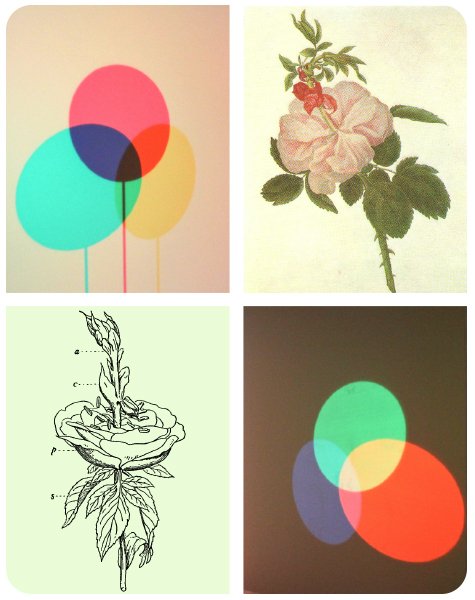
Polarities Goethean Science Course
A three-day course looking at Goethe's idea of polarity, focusing on his colour theory and his work on plants.

Dr Mattias Rang: What Relationship Does the Inverse Spectra of Goethe's Theory of Colours Have to the Duality of Projective Geometry?
What Relationship Does the Inverse Spectra of Goethe's Theory of Colours Have to the Duality of Projective Geometry?
In Goethe’s theory of colour we find two spectra: the rainbow spectrum (Newton’s spectrum) with green in the middle, and the “inverted spectrum” with magenta in the middle, which is also called the “inverse spectrum” or “Goethe’s spectrum”. In today’s optics, it is known that the two spectra are mutually dependent as complements that are — at least phenomenologically — equivalent.
At about the same time the duality principle in geometry was formulated, thereby founding projective geometry. Rudolf Steiner repeatedly pointed out the importance of projective geometry for understanding life processes, and he coined the term “counterspace” in this context. Research was done on both fields since decades, often also in local and inner proximity, like in the case of Michael Wilson and George Adams at Sunfield. Yet, both research questions were not often addressed together. Against this background, the question arises as to the relationship between the optical complementarity of the inverse colour spectra and the duality of projective geometry. Can the physical-mathematical description of light and colour be extended by a view and/or description of counterspace?
Where: The Field Centre, Tiltups End, Bath Road, Nailsworth, Gloucestershire GL6 0QE
When: Friday 29 November, 7pm
Booking: Please email to confirm your place at: anna.daniels@rmt.org
About Dr Mattias Rang
Matthias Rang studied physics in Freiburg, Germany and Berlin before becoming a visiting researcher in the field of nano-optics at the University of Washington, Seattle. He received a PhD from the University of Wuppertal, Germany. At the Goetheanum in Dornach, Switzerland, where Rang co-leads the Natural Science Section, he carries out research on Goethe’s theory of color in relation to physical optics..
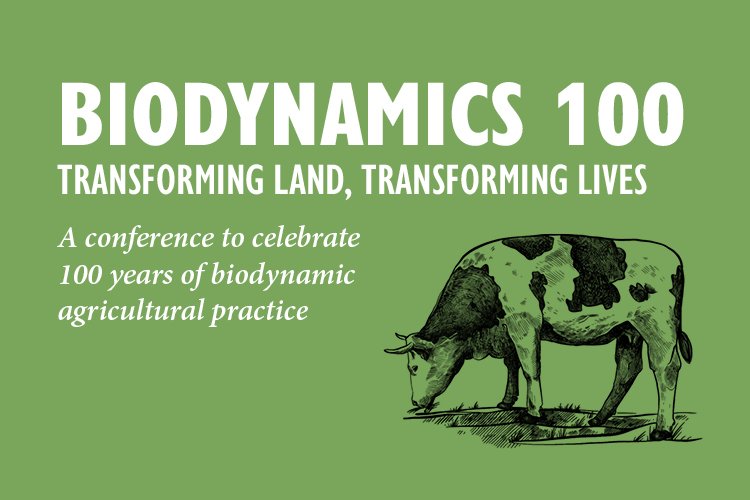
Biodynamics 100
Biodynamics 100: Transforming Land, Transforming Lives.
A conference to celebrate 100 years of biodynamic agricultural practice
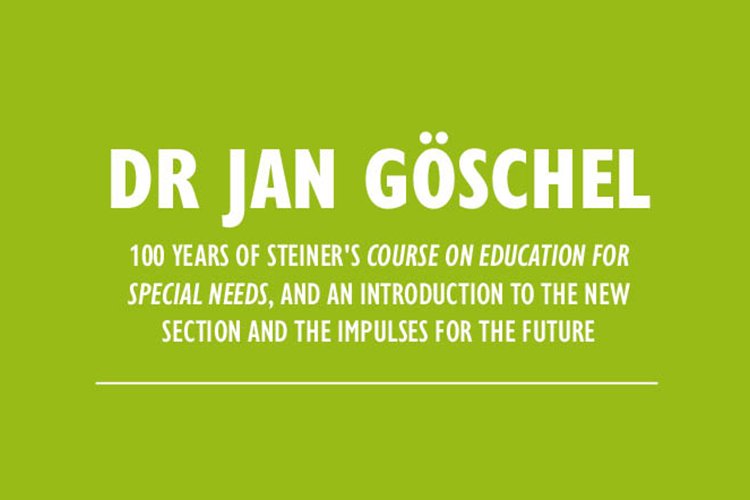
Dr Jan Göschel: 100 Years of Steiner's Course on Education for Special Needs
We are delighted to welcome Dr Jan Göschel for a presentation on 100 Years of Steiner's Course on Education for Special Needs, and an Introduction to the New Section and the Impulses for the Future

Alexander von Humboldt: "The lost hero of science"
Join Graham Kennish for an evening talk on Alexander von Humboldt; “the lost hero of science.”
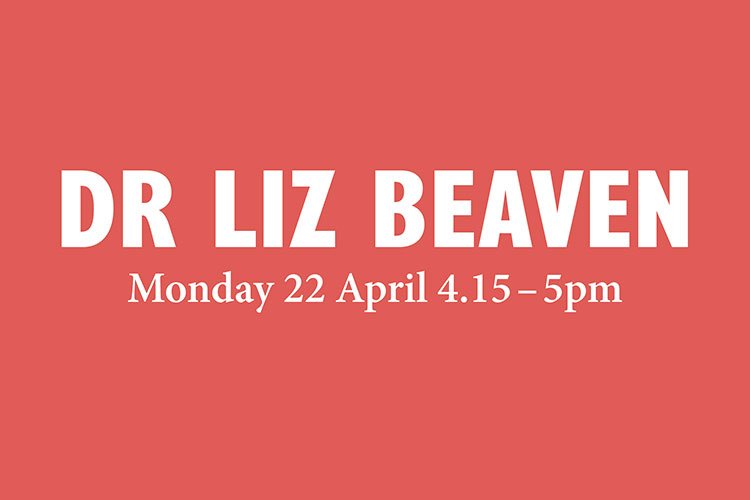
Dr Liz Beaven: The Development of Steiner/Waldorf Education in the US
We are delighted to welcome Dr Liz Beavan (US) who will present on the development of Steiner / Waldorf education in the United States, exploring how this serves, and does not serve, the needs we are seeing in schools today.

Meditation as Creative Act
Running over three days, this experiential workshop takes as its basis the meditative indications of Rudolf Steiner, exploring the theme of meditation as creative act.

World Social Initiative Forum - Leadership in Transformation
UKForum 2023
Action Research in a Community of Practice
In-Person & Online Forum Hosted by the World Social Initiative Forum (WSIF) and Ruskin Mill Trust
Dates: Tuesday, July 25th - Sunday, July 30th 2023
In-Person Location: The Field Centre, Horsley, Gloucestershire, UK
Online: Anywhere in the World via Zoom
If you have any queries please email Hannah Shepherd: hannah.shepherd@rmlt.org.uk
The online Forum will include live-streamed Opening and Closing ceremonies, daily sessions with Orland Bishop, independently designed craft activities, break-out group conversations, and presentations from Aonghus Gordon, Lisa Romero and Jojo Mehta.
Leadership in Transformation - International Forum
Wednesday 26 July to Saturday 29 July
Wool Barn, Ruskin Mill Trust GL6 0EQ
You are warmly invited to attend any of the open offerings from this specialCUT conference. The available slots are indicated above.
This conference is the culmination of an intensive 9 month online programme on the topic of finding the dynamics of ourCUT inner leadership and learning how to apply them in a practical context.
The open sessions touch on this topic, but are accessible to people who have not attended the 9 month programme.
Anyone who wishes to attend, is welcome to just turn up. We are suggesting a donation of £10 per session on Wednesday, Thursday and Friday. Please pay in cash at the door. The Saturday session is free of charge and organic sourdough pizza will be available in the evening at a cost of £10 per person.
We look forward to welcoming you.
See below for the schedule:
If you have any queries please email Hannah Shepherd: hannah.shepherd@rmlt.org.uk
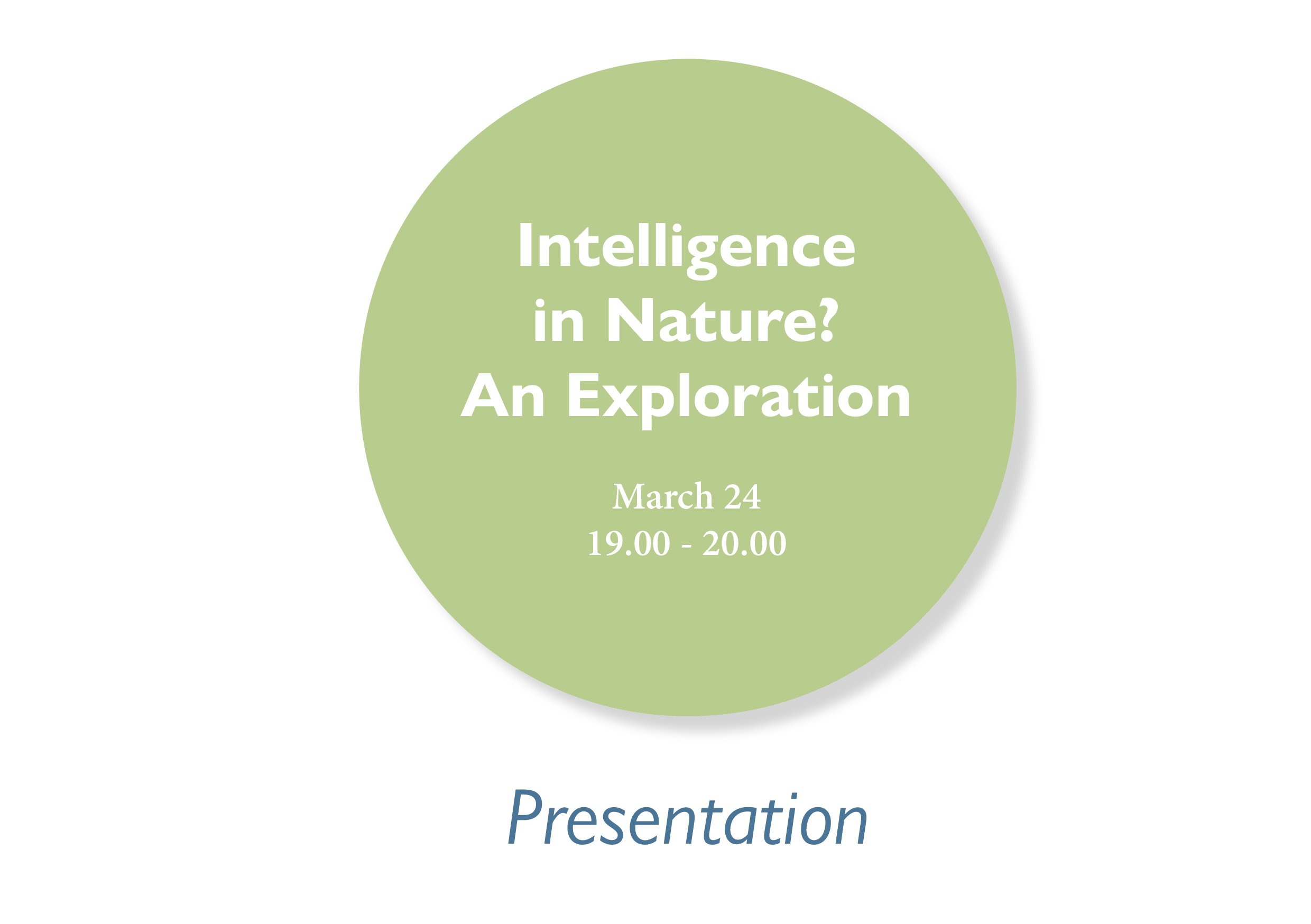
Intelligence in Nature? An Exploration
Are fungi and plants intelligent? How does animal intelligence relate to human intelligence? Many popular books today address such questions, and intelligence in nature is the focus of ardent debate within mainstream science. With the current discussion as a starting point, Craig Holdrege will explore what intelligence could mean in plants, animals, and humans. His guiding question is: How can we gain understanding in a way that does justice to the diverse ways of being found in the world?
All welcome.
Craig Holdrege, Ph.D., is co-founder and director of The Nature Institute in Ghent, NY, an organization dedicated to developing a phenomenological and participatory understanding of the natural world (natureinstitute.org). He is deeply interested in the interconnected nature of things and how we can understand life in truly living ways as a basis for responsible human action. His studies of plants and animals, as well as his commentaries scientific thinking and new developments in the biological sciences, aim to stimulate a transformation in human thinking and perception. Craig is the author of many articles, monographs, and books, including Thinking Like a Plant: A Living Science for Life and Seeing the Animal Whole – And Why It Matters. He gives talks, workshops, and courses nationally and internationally.
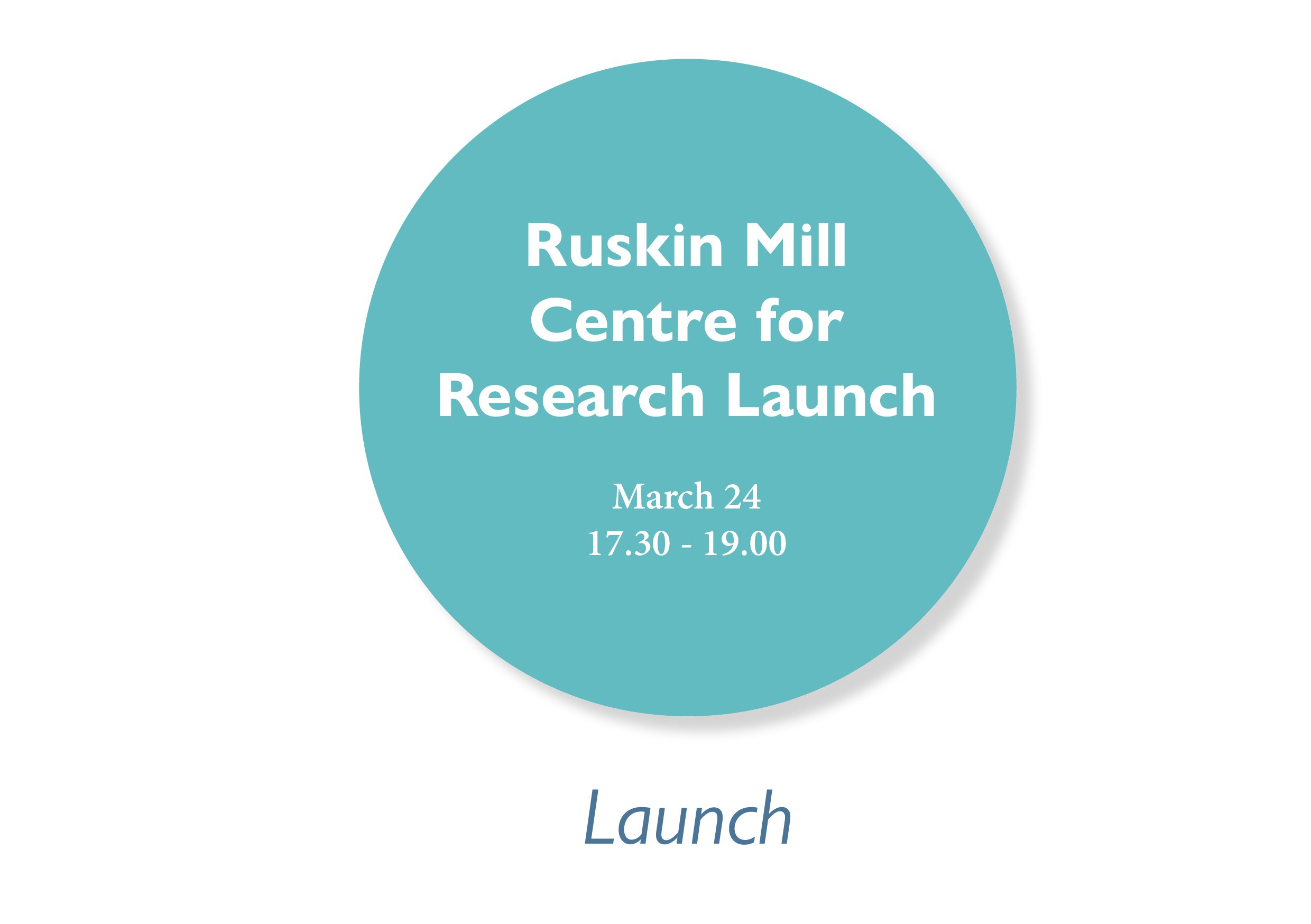
Ruskin Mill Centre for Research Launch
Join us for the launch of the Ruskin Mill Centre for Research.
17.30 Buffet
18.15 Inauguration of the silver flow form – an imaginative and artistic deed for water, with the addition of triturated gold by Simon Reakes, and reciting of a creation myth by Kymberly Foos
18.30 Inauguration of Ruskin Mill Centre for Practice . Opening words by Aonghus Gordon: The vision for the Ruskin Mill Research Trust as a centre for Goethean Science and Rudolf Steiner Spiritual Science. Followed by Prof Laurence Cox, Consultant Director of the new Trust. Introductions from Dr Troy Vine and Dr Judyth Sassoon, Associate Researchers of the Field Centre.
After a short break, the launch will be followed by a keynote presentation from Dr Craig Holdrege from the Nature Institute titled, Intelligence in Nature? An Exploration
Please RVSP Anna.Daniels@rmt.org
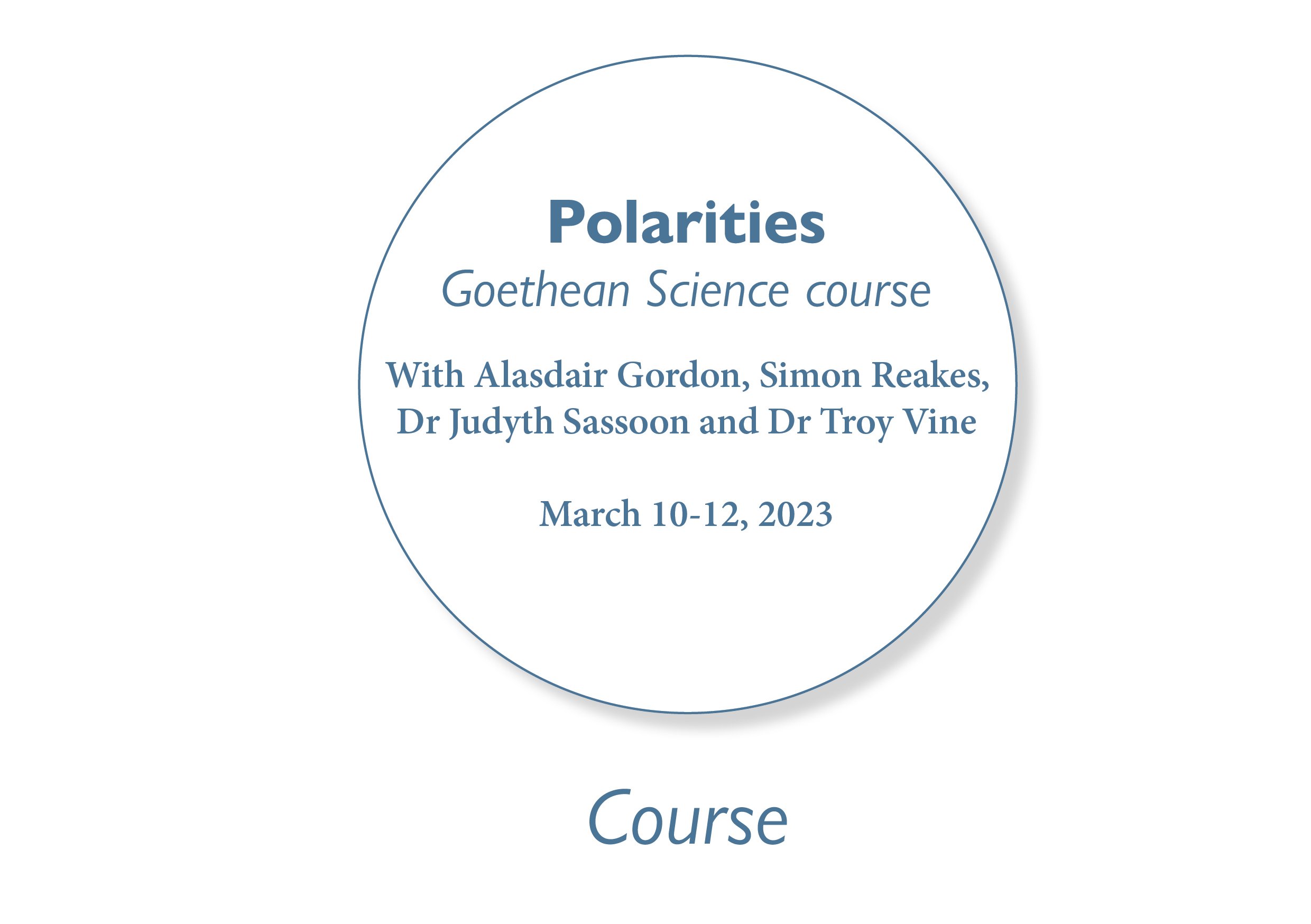
Polarities - Goethean Science course
Seeing nature as an expression of polarities was fundamental to Goethe’s scientific investigations. However, of the natural domains Goethe studied, his investigations of plants and colour are the only two works he brought to completion. This course takes us on an experiential journey through these two domains of nature in order to gain an embodied understanding of Goethe’s idea of polarity and see nature as he did.
Faculty: Alasdair Gordon, Simon Reakes, Dr Judyth Sassoon and Dr Troy Vine
Cost: £75 including lunches and refreshments
Registration:: info@rmlt.org.uk
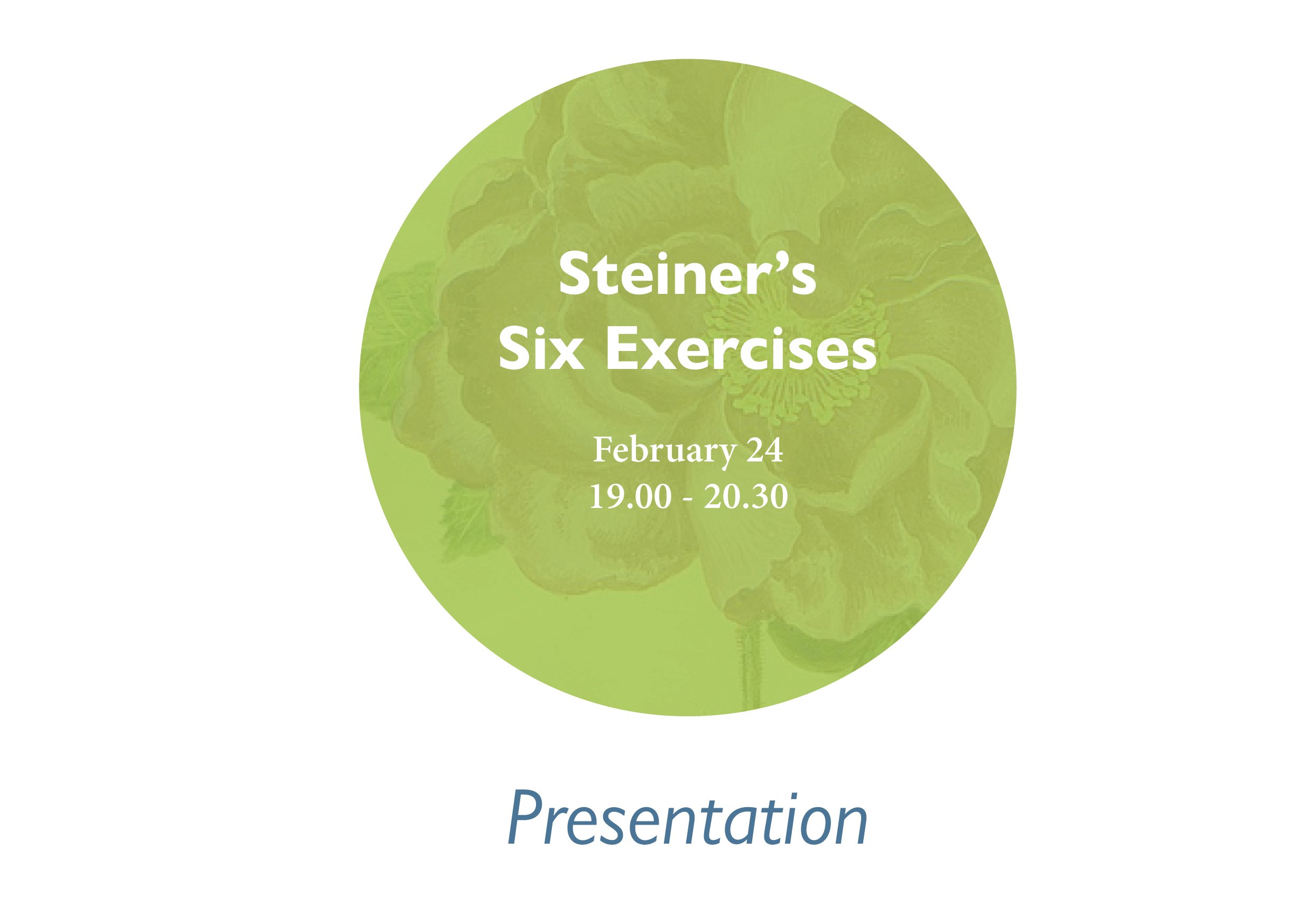
Steiner's Six Exercises
This presentation explores Rudolf Steiner’s six basic exercises in three key areas. Firstly, we consider the role of the six exercises in preparing the soul for the meditative and contemplative path. Following this, the six exercises in relation to meditative activity itself are explored. To conclude, the six exercises in the sphere of social engagement are considered.
Bart Vanmechelen Anthroposophic Council for Inclusive Social Development
Joan Sleigh School of Spiritual Science, Goetheanum
Simon Reakes The Field Centre
Free entry. All are welcome.

Meditation as holding creative tension
How does the rose speak to us today?
This workshop explores the rose as a symbol of archetypal development, one that relates to the self, the world, their mutual interweaving and creative tensions.
This experiential workshop takes as its basis the meditative indications of Rudolf Steiner. Working with contemplative and phenomenological approaches, we will inquire into the polarities of the rose, its form, colour and gesture.
What can the rose show us about developing inner capacities for our times, life, profession, and other domains?
The workshop is facilitated by
Bart Vanmechelen (Anthroposophic Council for Inclusive Social Development)
Joan Sleigh (School of Spiritual Science Goetheanum)
Simon Reakes (The Field Centre)
All are welcome.
BOOKING: Please email: info@rmlt.org.uk
FEE: £30 including lunch and refreshments
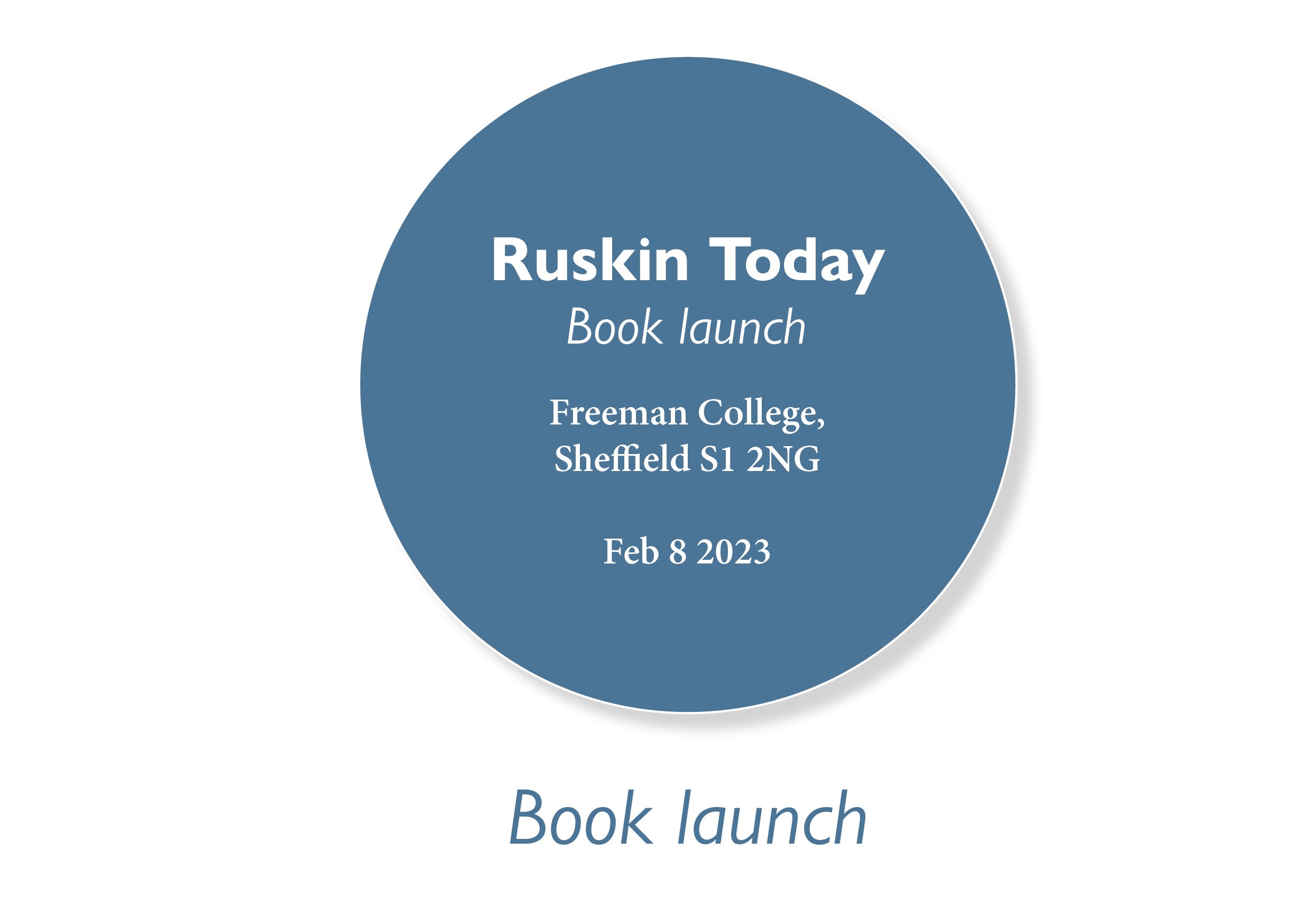
Book launch of Ruskin Today
Join us for the Launch of Ruskin Today, a revised and expanded edition
Freeman College, Sterling Works, 88 Arundel Street, Sheffield, South Yorkshire S1 2NG
All Guild Companions and their colleagues are invited to attend the launch of the revised and expanded book: Ruskin Today.
There will be a buffet from 6pm, followed by a short presentation at 7pm.
This revised and expanded edition of the book is supported by Ruskin Mill Trust and produced as part of the Ruskin bicentenary cross-Trust celebrations that took place in 2019. The book includes new chapters, including Women, Craft and Activism.
RSVP: Anna.Daniels@rmt.org
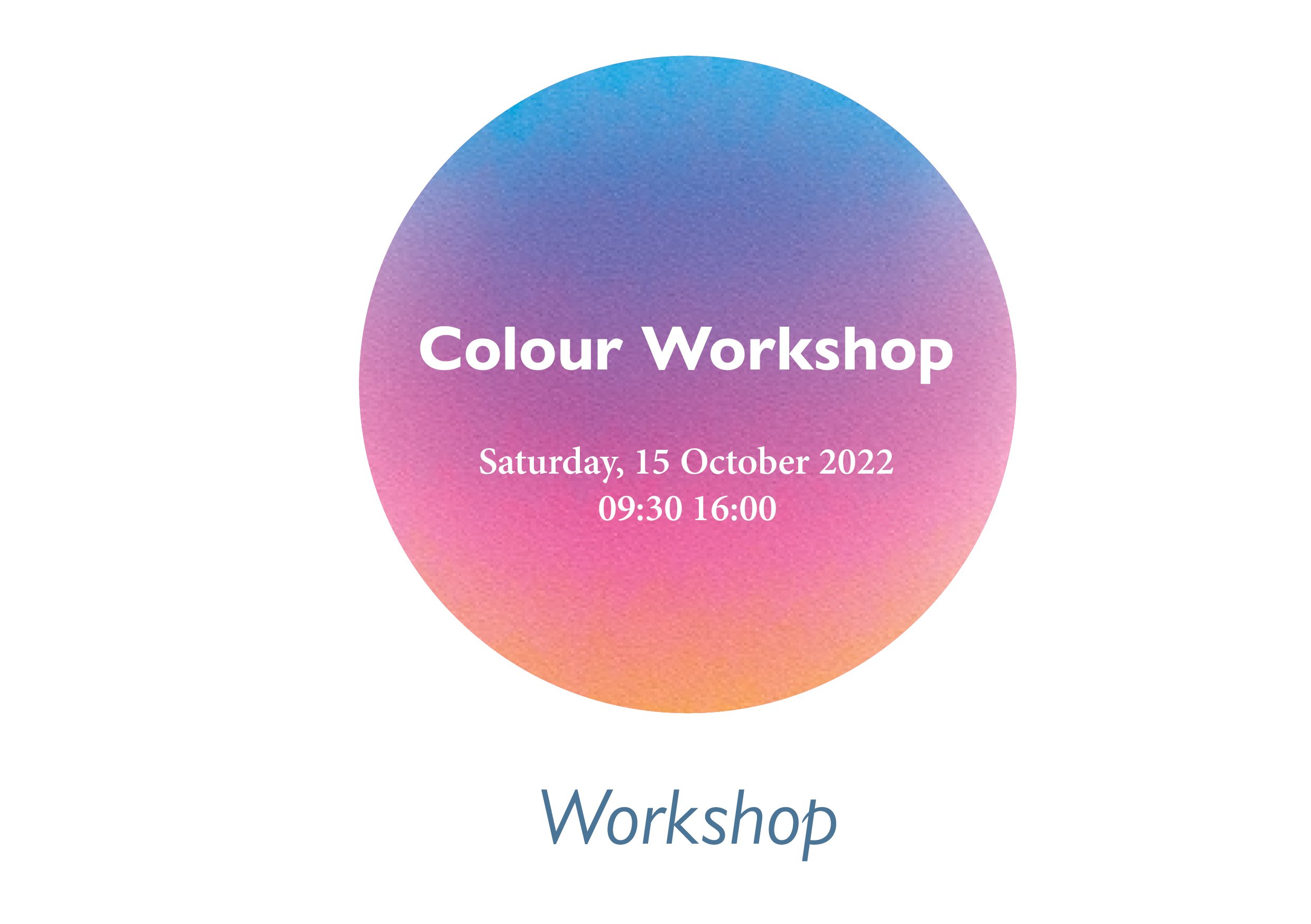
Colour Workshop
Colour Workshop
This workshop, for exploring and deepening insights into colour, will be of interest to teachers, therapists, and those interested in Goethean science.
Saturday 21 January
10.00 – 16.00
The Festival Room, Ruskin Mill, GL6 0LA
Fee £25 (RMT staff no charge)
Workshop programme
10:00–11:30 How Real are Coloured Shadows? New Research Perspectives
Matthias Rang, Co-leader of the Natural Science Section of the Goetheanum
11:30–12:00 Break
12:00–13:00 Newton and Goethe as Founders of Holistic Science
Troy Vine, Associate Researcher at the Field Centre
13:00–14:00 Lunch (provided)
14:00–15:00 Exploring the Relationships between Colours
Nora Löbe, Artist and educator at the Swiss Science Centre Technorama
15:00–16:00 Introduction to Metal, Light, Colour Therapy
Hazel Adams, Art Therapist and Metal colour light therapist
RSVP anna.daniels@rmt.org
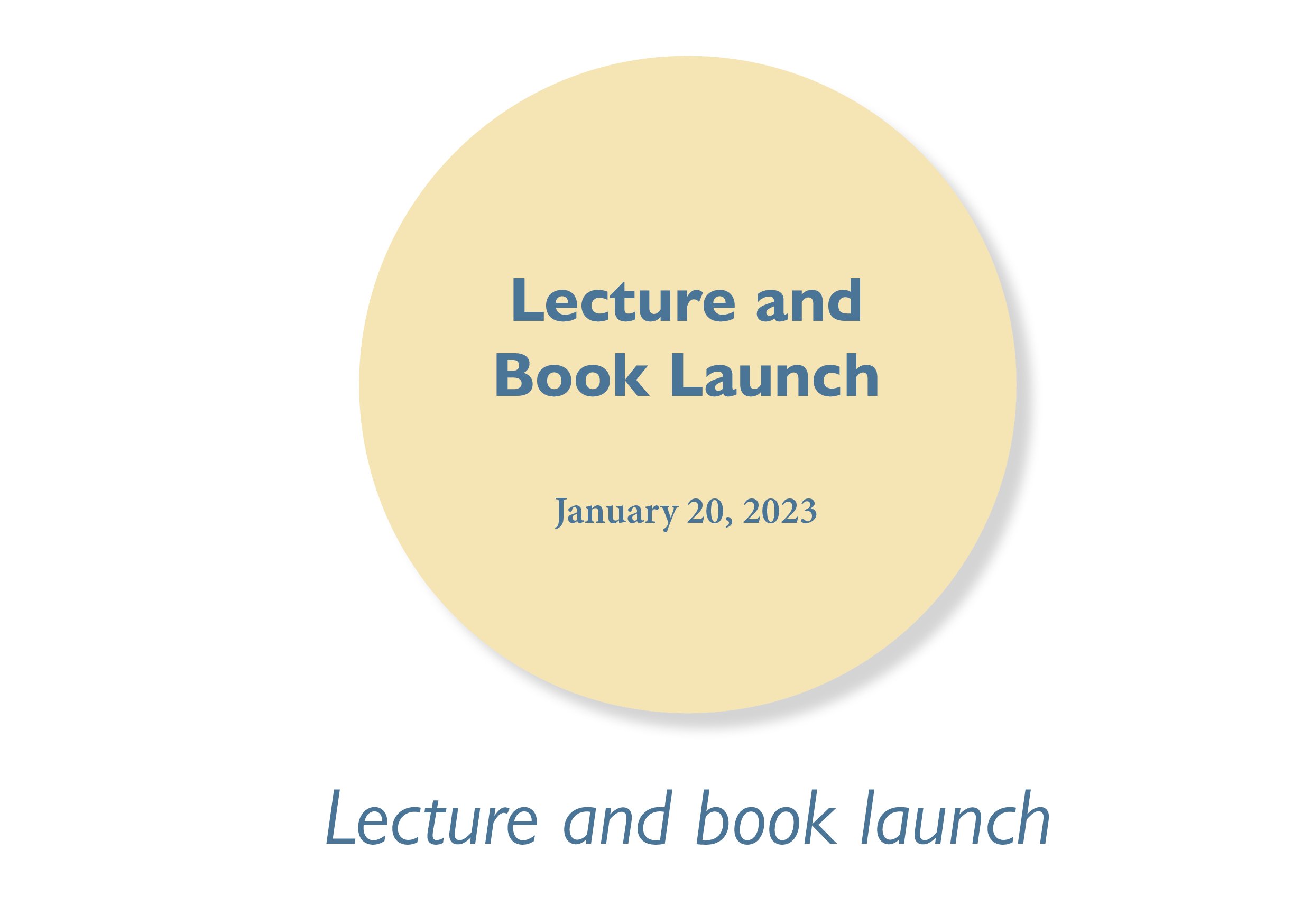
Lecture and Book Launch
Lecture
Friday 20 January
19.00 – 20.30
The Field Centre, GL6 0QE
Greenhouse or Mirror with Window? An Optical Approach to Understanding the Earth’s Atmosphere
Viewing the thermal regulation of the earth from the perspective of optics is surprisingly straightforward. Surrounded by a vacuum, the earth’s thermal exchange with the cosmos occurs entirely via light and heat radiation. The climate crisis is thus an expression of a changing relationship of the earth to the cosmos that can be described optically: the earth’s atmosphere is increasingly losing the capacity to be a window to the cosmos and is increasingly becoming a mirror. In this lecture we will consider phenomena, in part from daily life, with which we can develop a characterisation of the the earth’s thermal mantle.
Matthias Rang, Co-leader of the Natural Science Section of the Goetheanum
Book Launch
20.00 onwards
You are invited to the launch of Seeing Colour: A Journey Through Goethe’s World of Colour by
Matthias Rang, Co-leader of the Natural Science Section of the Goetheanum
Troy Vine, Associate Researcher at the Field Centre
Nora Löbe, Artist and educator at the Swiss Science Centre Technorama
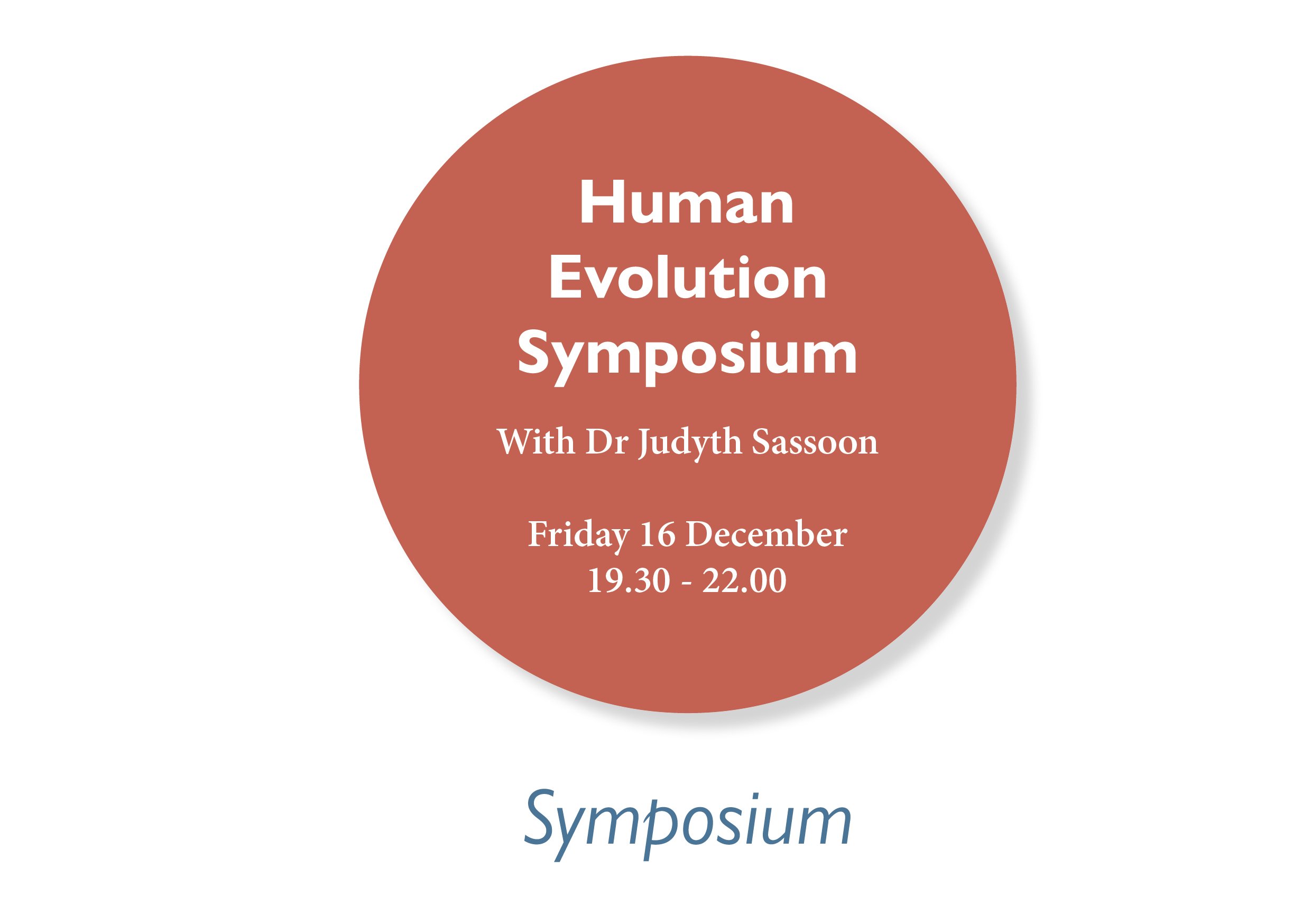
Human Evolution Symposium
This event is open to anyone interested in a hands-on experience of “hominid” fossils. I will be displaying exact museum casts of key specimens that have informed current thinking on ancient humans. We will make observations and comparisons, and discuss how the specimens contributed to paradigm shifts and controversies in human evolution research. We will consider the anatomy, posture and way of life of these ancient creatures and one main focus will be the well-known discussion on brain size, hand dexterity and bipedal posture. No prior knowledge is assumed.
Dr Judyth Sassoon
A presentation and discussion at The Field Centre exploring human evolution.
All are welcome.
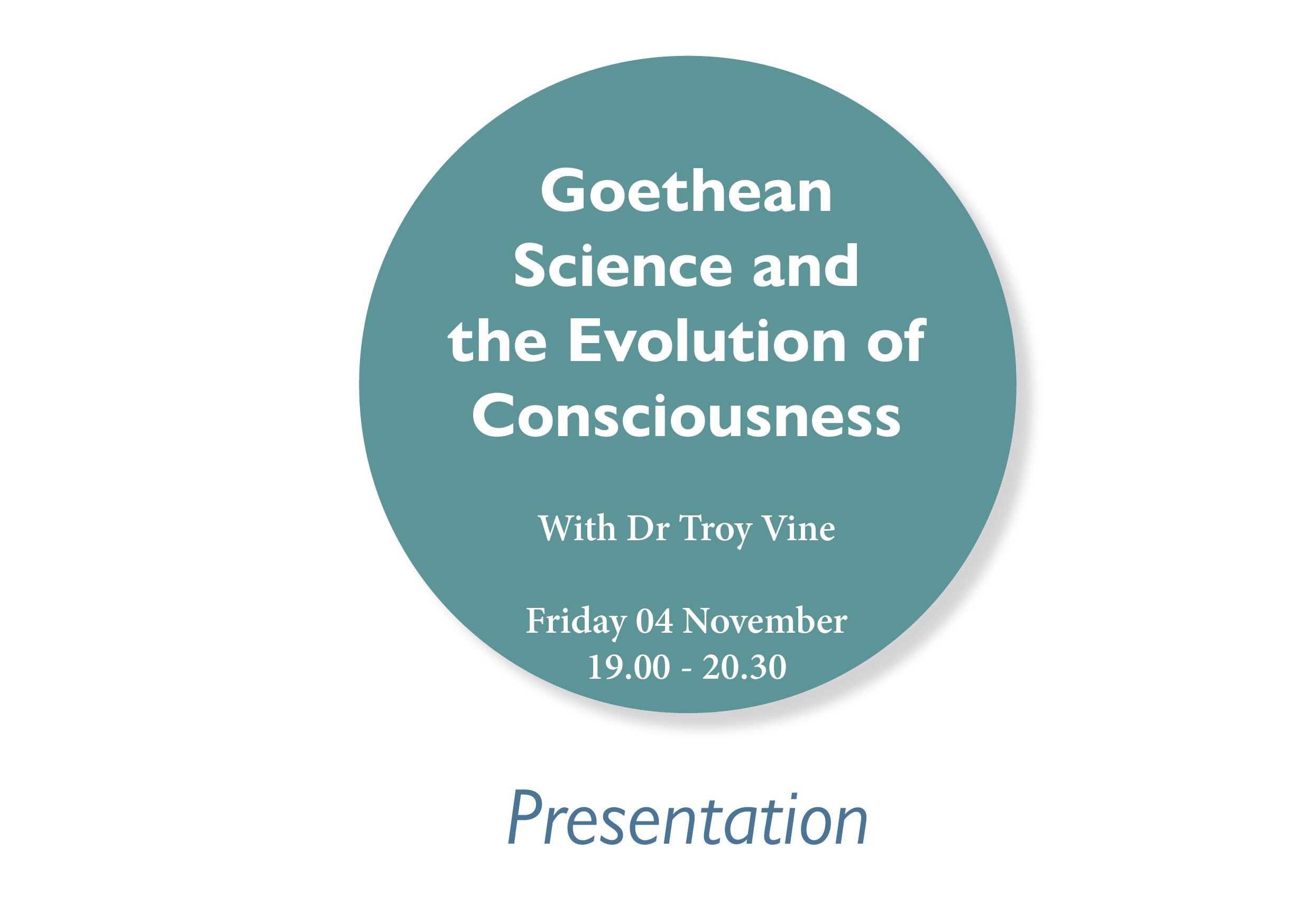
Goethean Science and the Evolution of Consciousness
In his commentary on Goethe’s Scientific Writings, Rudolf Steiner remarks apropos the structure of the Didactic Part of the Farbenlehre that the “impulse of the age that led to the architecture of Hegel’s whole system is obvious in this path moving from subject to object and back again”.
This “impulse of the age” did not only lead to Goethe’s Farbenlehre and Hegel’s Phenomenology of Spirit—we also find it developed in the evolutionary thought of Owen Barfield, which his fellow Inkling J.R.R. Tolkien brought to expression in his increasingly popular Legendarium. In this lecture we will consider the structure of the Didactic Part of Goethe’s Farbenlehre as an evolution of consciousness and then compare this with Owen Barfield’s conception of evolution (with a short intermezzo on the Phenomenology and history of the elves).
Dr Troy Vine
Free entry
All welcome

The Question of Place
This presentation draws on the work of Jochen Bockemühl, whose pioneering approach to place and landscape studies is informed by both J. W. Goethe and Rudolf Steiner. Bockemühl, in employing the fundamental principles of Goethe’s work, further enhanced his approach through Steiner’s meditative indications. Bockemühl considered his approach to be a ‘holistic mode of observation’. In his Awakening to Landscape, Bockemühl proposes that “A holistic study of nature begins' by gaining further experience in moving from phenomenon to inner vision and then makes this its guide in turning the eye back to the phenomenon.” There are three stages implicit in Bockemühl’s articulation; three stages that form a continuum. These are (1) studying the phenomenon, (2) moving from the phenomenon to inner vision, and (3) turning the eye back to the phenomenon. This presentation explores the stages of this iterative cycle in relation to the question of place.
All are welcome.
Simon Reakes, MSc
Simon is currently undertaking doctoral study at the Royal Holloway University of London exploring Genius Loci and contemporary methods of Goethean inquiry
Venue: The Field Centre
Entrance: £ donation on the door

Knowledge in the hand, or how to release David from a rock
Maker’s knowledge (artisanal epistemology) is the embodied knowledge of craftspeople, gained by virtue of their physical engagement with a particular craft. It points to a recent realisation that the production of material objects requires large-scale experiential knowledge that is complex, innovative, methodical and evolving. Here, I will speak about the importance of maker’s knowledge in general and also highlight its role in furthering science in the early modern period and its recent use as a research method for understanding human culture in the past. All the examples I use refer to human engagement with rocks and minerals.
All are welcome.
Dr Judyth Sassoon, Associate Researcher for the Field Centre; PDRA Palaeobiology, University of Bristol
Venue: The Field Centre
Entrance: £ donation on the door

Polarity or Enhancement? The Role of Mathematics for Goethean Science
Goethean science is often characterised as a qualitative approach to science. What exactly this is supposed to mean is rarely spelt out, but generally implied is some kind of opposition to quantitative or mathematical approaches to science. Viewing Goethean science in opposition to mathematics may certainly be helpful for gaining an initial understanding of what it is, but taking this distinction as essential impedes not only a deeper understanding, but also its subsequent development.
In the first half of this talk we will compare the polar structures of colour and space to show that connecting Goethe’s colour studies to nineteenth century developments in mathematics, specifically projective geometry, can enrich our understanding of polarity. In the second part of this talk we will compare sequences generated by geometrical transformation and plant development to show that the practice of projective geometry can help sensitise us to the metamorphosis of plants.
Dr Troy Vine, Associate Researcher for the Field Centre, Humboldt University of Berlin
Venue: The Field Centre
Entrance: £ donation on the door
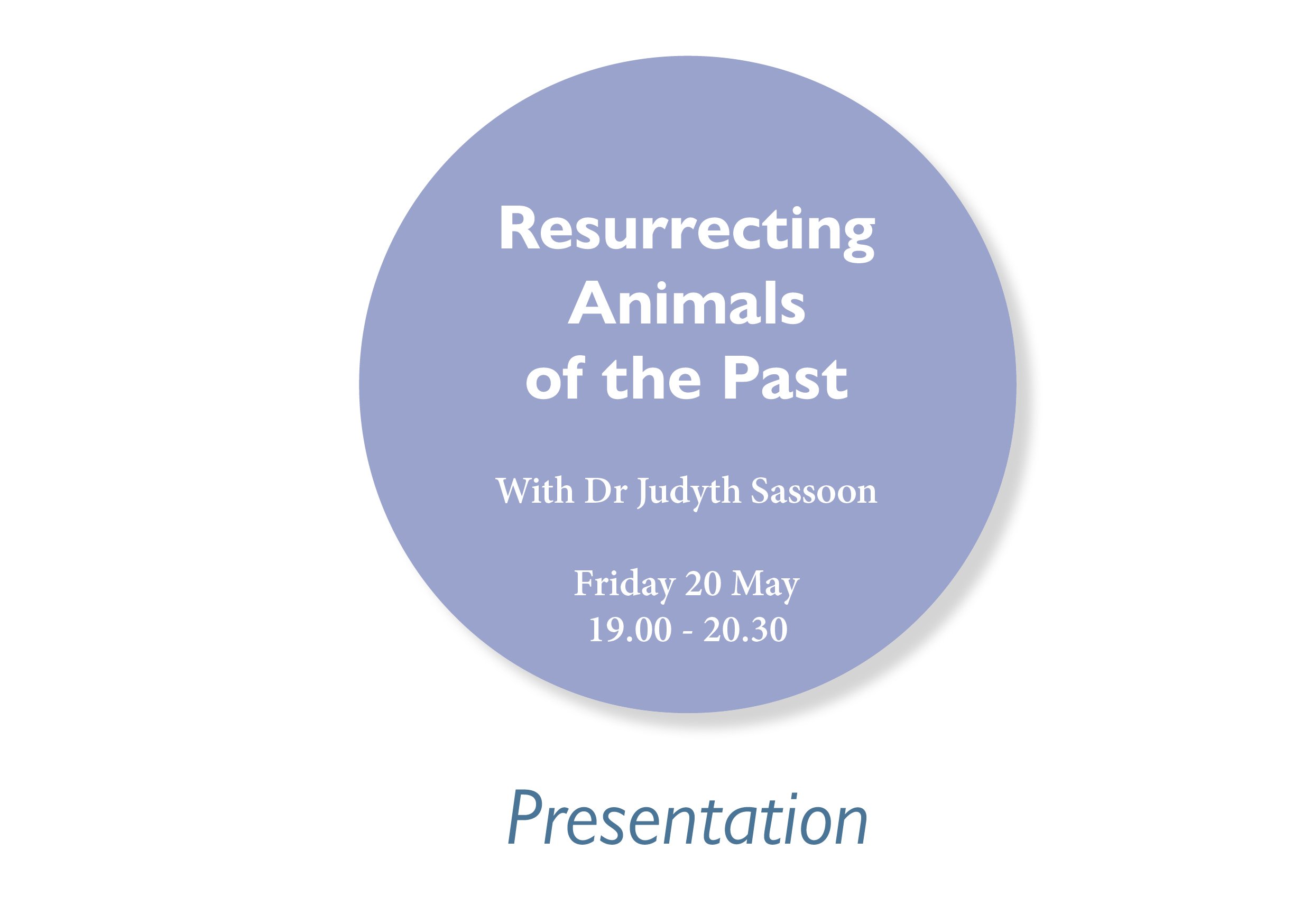
Resurrecting Animals of the Past
Nature’s importance for human well-being has a high media profile and there is a growing call for a deeper, more connected relationship with the animals and plants around us. But what about the past? Does the past matter and what kind of relationship can we have with the creatures of earth’s deep history? What is the ontological status of animals and plants that are only known to us through fossils? Referring to Goethe’s work on animal and plant archetypes, I will present some of my recent research and discuss the role of “typological thinking” in how we think about and relate to extinct animals.
Dr Judyth Sassoon, Associate Researcher for the Field Centre; PDRA Palaeobiology, University of Bristol
Venue: The Field Centre
Entrance: £ donation on the door

The Pearl in Every Human Being
Some living examples of the Community Humanizing Impulse in the life of Ute Craemer - bridgebuilding between humans and beyond!
With Ute Craemer (co-founder of the World Social Initiative Forum, pioneer of the Associação Comunitária Monte Azul, Alliance for Childhood in Brazil)
Venue: The Field
Entrance: £ donation on the door
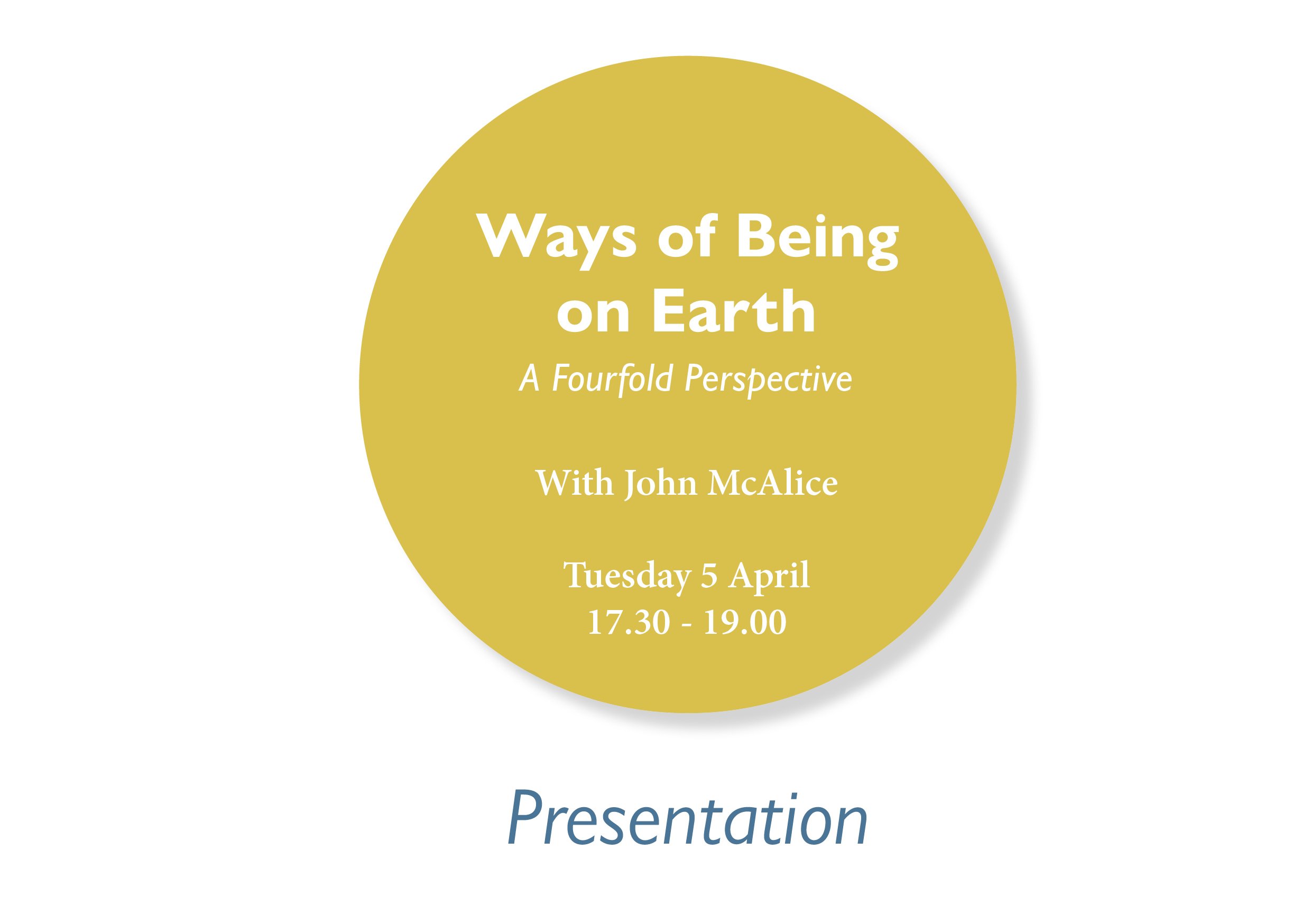
Ways of Being of Earth: a Fourfold Perspective
Barry Lopez once pointed out that we have developed a relationship to the experienced world in which we would rather think about the fox slinking through the meadow, than be with the fox slinking through the meadow. This preoccupation with our own thinking has the tendency to blind us to the qualitive differences apparent in the world around us. Rudolf Steiner called attention to the fourfold expression of being on earth with his remarks concerning mineral, plant, animal and human. These express themselves in qualities of form, life, sentience and intention. By attuning ourselves to the nature of these different qualities, we can become more aware of the nature of our relatedness to the wholeness of which we are also a part and begin to learn from the world what it needs of us.
John McAlice, Senior Educator and Researcher at the Nature Institute
Venue: The Field
Entrance: £ donation on the door
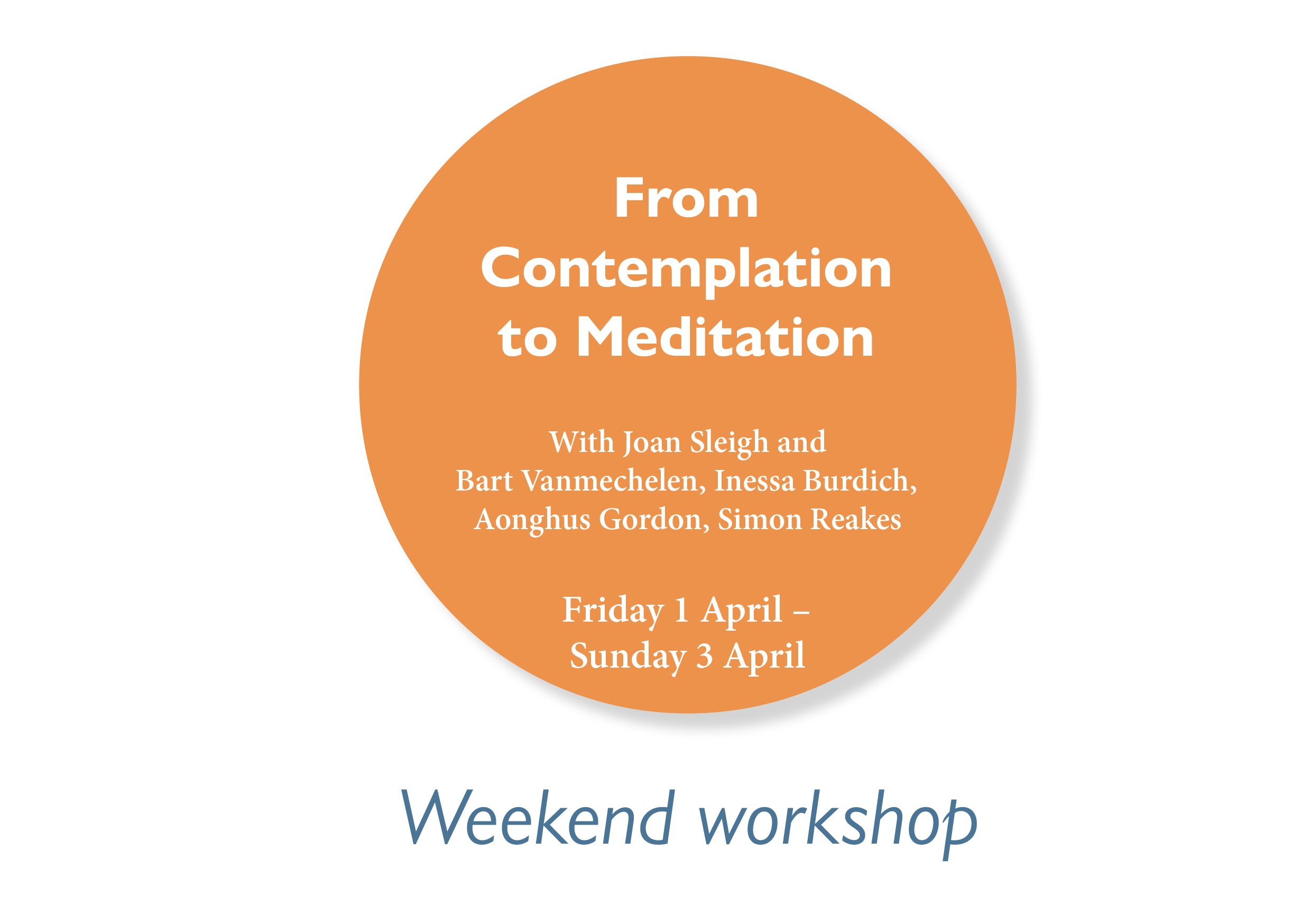
From Contemplation to Meditation
Course now full.
This experiential weekend seminar offers a path from contemplative practice grounded in a Goethean approach to phenomenon, to deepening into the practice of meditation as taught by Rudolf Steiner.
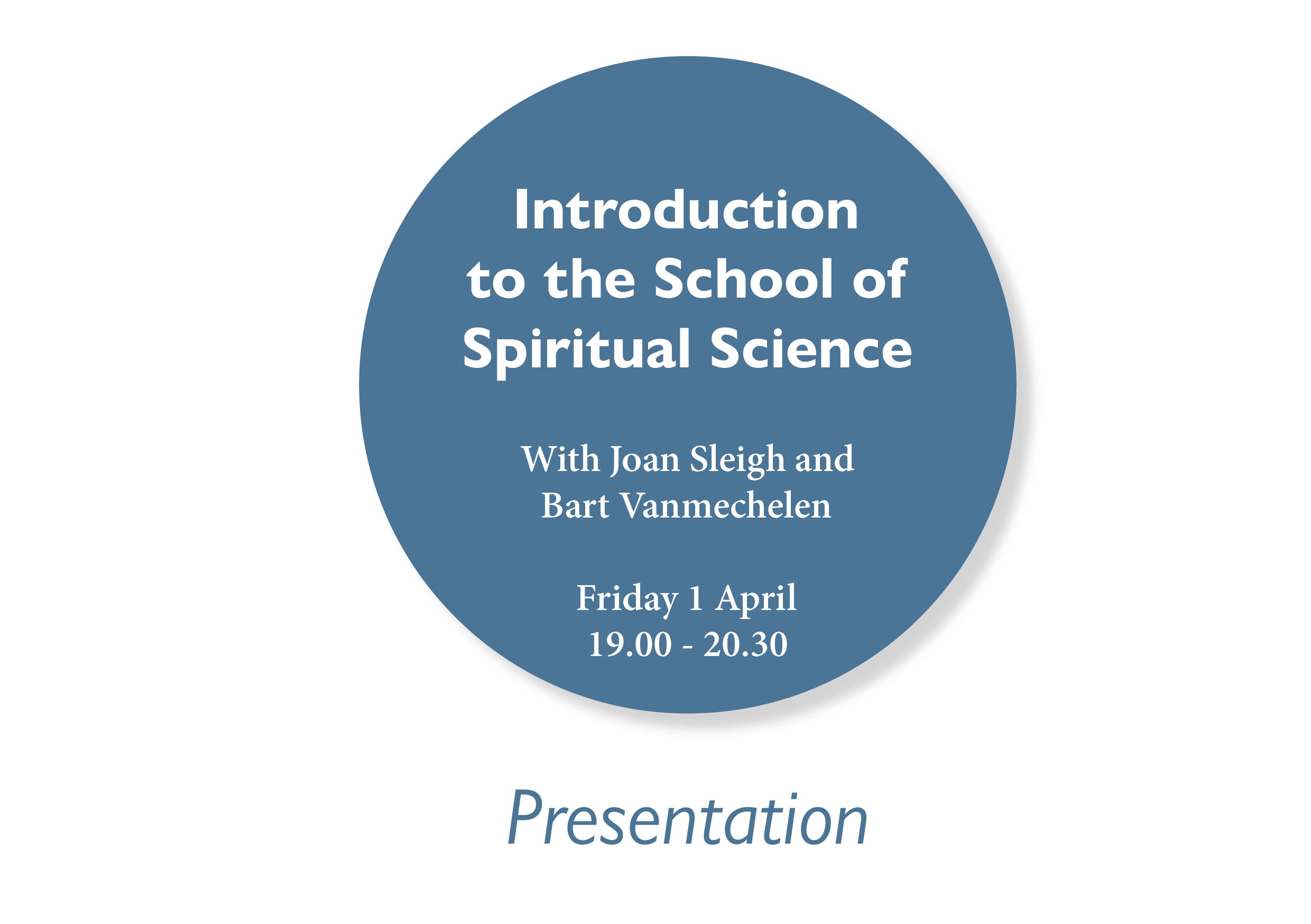
Introduction to the School of Spiritual Science
The School of Spiritual Science is a framework of understanding and practice which can support every human being in awakening to itself and a deeper understanding of the world. The School invites all those who are interested in self-mastery, to actively participate in furthering the dignity and responsibility of human beings, as integral co-learners and co-creators of an emergent and interconnected future. As evolving soul-spiritual beings, we may become ever more aware of the interrelationships of all things…
In this session, we will introduce some core qualities of this work and invite you into an open conversation of exploration. Together we will look at the value of tuning ourselves as instruments of perception, in the practices of observing, reflecting, resonating, contemplating and articulating. We intend to explore how we might create a mood and find a language which may open such spaces in which soul-spiritual perception can unfold.
We warmly invite you to join us on this journey, as apprentices of life.
With Joan Sleigh (Goetheanum) and Bart Vanmechelen (Anthroposophic Council for Inclusive Social Development)
Venue: The Field
Entrance: £ donation on the door
All events
-
June 2025
2
- 27 Jun 2025 The Organic Geometry of Path Curves 27 Jun 2025
- 26 Jun 2025 – 29 Jun 2025 Projective Geometry Conference of the Natural Science Group 26 Jun 2025 – 29 Jun 2025
-
March 2025
1
- 21 Mar 2025 – 23 Mar 2025 Polarities Goethean Science Course 21 Mar 2025 – 23 Mar 2025
- November 2024 1
-
May 2024
3
- 24 May 2024 – 26 May 2024 Biodynamics 100 24 May 2024 – 26 May 2024
- 21 May 2024 Dr Jan Göschel: 100 Years of Steiner's Course on Education for Special Needs 21 May 2024
- 3 May 2024 – 4 May 2024 Alexander von Humboldt: "The lost hero of science" 3 May 2024 – 4 May 2024
-
April 2024
1
- 22 Apr 2024 Dr Liz Beaven: The Development of Steiner/Waldorf Education in the US 22 Apr 2024
-
March 2024
1
- 8 Mar 2024 – 10 Mar 2024 Meditation as Creative Act 8 Mar 2024 – 10 Mar 2024
-
July 2023
1
- 25 Jul 2023 – 30 Jul 2023 World Social Initiative Forum - Leadership in Transformation 25 Jul 2023 – 30 Jul 2023
-
March 2023
3
- 24 Mar 2023 Intelligence in Nature? An Exploration 24 Mar 2023
- 24 Mar 2023 Ruskin Mill Centre for Research Launch 24 Mar 2023
- 10 Mar 2023 – 12 Mar 2023 Polarities - Goethean Science course 10 Mar 2023 – 12 Mar 2023
-
February 2023
3
- 24 Feb 2023 Steiner's Six Exercises 24 Feb 2023
- 24 Feb 2023 – 26 Feb 2023 Meditation as holding creative tension 24 Feb 2023 – 26 Feb 2023
- 8 Feb 2023 Book launch of Ruskin Today 8 Feb 2023
-
January 2023
2
- 21 Jan 2023 Colour Workshop 21 Jan 2023
- 20 Jan 2023 Lecture and Book Launch 20 Jan 2023
-
December 2022
1
- 16 Dec 2022 Human Evolution Symposium 16 Dec 2022
-
November 2022
1
- 4 Nov 2022 Goethean Science and the Evolution of Consciousness 4 Nov 2022
-
September 2022
1
- 30 Sept 2022 The Question of Place 30 Sept 2022
-
August 2022
1
- 31 Aug 2022 Knowledge in the hand, or how to release David from a rock 31 Aug 2022
-
June 2022
1
- 17 Jun 2022 Polarity or Enhancement? The Role of Mathematics for Goethean Science 17 Jun 2022
-
May 2022
1
- 20 May 2022 Resurrecting Animals of the Past 20 May 2022
-
April 2022
4
- 12 Apr 2022 The Pearl in Every Human Being 12 Apr 2022
- 5 Apr 2022 Ways of Being of Earth: a Fourfold Perspective 5 Apr 2022
- 1 Apr 2022 – 3 Apr 2022 From Contemplation to Meditation 1 Apr 2022 – 3 Apr 2022
- 1 Apr 2022 Introduction to the School of Spiritual Science 1 Apr 2022



